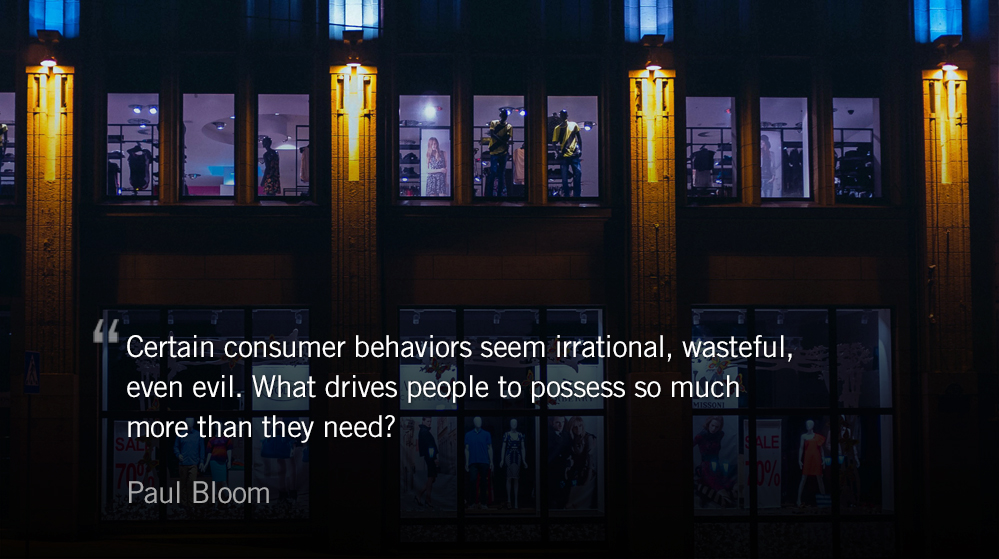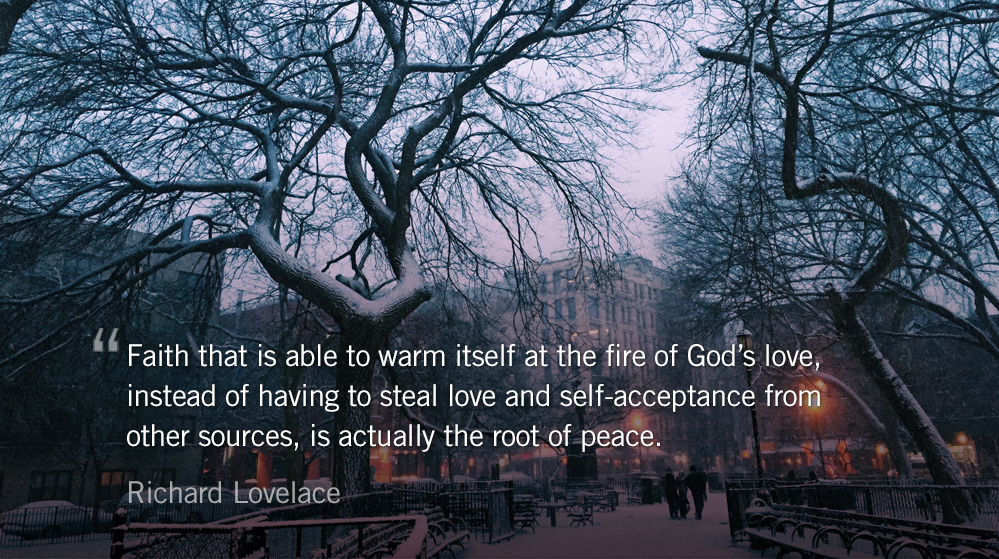Grace alone can save, and this grace is the direct gift of God, unmediated by any earthly institution. The elect cannot by any act of their own evoke it; but they can prepare their hearts to receive it, and cherish it when received. — R.H. Tawny
Every year, just after Thanksgiving, American consumers are caught up in the largest shopping weekend for U.S. retail. Once a single day named “Black,” the event now starts early Thanksgiving morning and slithers its way to Cyber Monday. Though the weekend of feckless spending is falling out of style, with declining sales since 2012 and retailers like REI opting out of the torrent of brick-and-mortar shoppers, U.S. consumers spent $9 billion last year — not counting online sales.
One of the fastest-growing categories in retail over the past decade is luxury goods. High-end clothes, watches, and electronics (case-in-point:Apple) are commanding an ever-increasing amount of consumer spending globally.
Most people own things that they don’t really need. It is worth thinking about why. — Paul Bloom.
“Certain consumer behaviors seem irrational, wasteful, even evil. What drives people to possess so much more than they need?” asks Yale physiology professor Paul Bloom. “The arguments against [luxury goods] are based on an incomplete theory of psychology, one that misses the depth of the pleasures they provide.”
Modern research around luxury goods tends to focus either on the way they create an image (I have a nice car, so I make more money and will be a better mate) or the way consumers respond to higher-quality products (this bespoke suit feels better than a cheap one). Bloom argues that we desire luxury goods for deeper reasons than aesthetics or image-refinement.
In a recent article Bloom cites Geoffrey Miller’s Spent: Sex, Evolution, and Consumer Behavior: “Someone who doesn’t want to pay $30,000 for the Rolex President watch can go online and, for $1,200, buy a knockoff so finely made that only an expert can tell the difference.” Miller notes the two watches are almost identical in their features including a Swiss ETA 25-jewel movement, a micro-laser-etched crown on the dial, a quad-wrapped 18k gold forged case, unique serial numbers, and a Rolex brand hologram sticker.
Bloom concludes, “If the fake Rolexes are indistinguishable from the real ones, they would work just as well if one’s goal is to impress others.” Similarly the knock-offs are water- and shock-resistant: the quality decrease is nearly imperceivable. So why would someone pay a $29,000 premium? Research shows that the history of an object is connected to the pleasure we receive from it. Psychologists call this the endowment effect.
From this perspective, the lure of such goods is not limited to their utility or beauty or to our beliefs that possessing them will impress people. Part of the lure is that we believe these items have a certain sort of history. The pleasure we get from these objects is genuine and aesthetic, not mostly sensory. — Paul Bloom
Brands are getting better about telling their stories. We’ve become accustomed to turning over everything from bags of coffee to bracelet price tags to find out more about the story of their creation. Notice the marketing around BMW’s new i3: “A vision to completely reimagine the future of mobility and rethink what it means to drive an electric vehicle…” scroll to read more.
Our nature is to flood our lives with the stories of objects in order to gain and project an understanding of who we are. Oakley’s and Under Armor – we’re strong and fast. Helly Hansen – we sail and explore. Warby Parker – we are smart and mid-century modern. Materialism pollutes our true identity with fickle narratives.
The authors of Scripture believed we are part of a meta-story — the story of a God who created and loves us, a God who was willing to sacrifice everything to reunite our story into his own. They also argue that we are, by nature, disconnected from this story. Our souls are searching for deeper stories and histories.
Forgoing a luxury good, or the surplus of any goods in general, could be an act of discipleship. In Religion and the Rise of Capitalism historian R.H. Tawney concludes:
Like an engineer, who, to direct the oncoming tide, dams all channels except the one through which it is to pour, like a painter who makes light visible by plunging all that is not light in gloom, the Christian attunes his heart to the voice from Heaven by an immense effort of concentration and abnegation. To win all, he renounces all. When earthly props have been cast down, the soul stands in the presence of God.
Today’s Reading
1 Chronicles 1-2 (Listen – 11:18)
Hebrews 8 (Listen – 2:22)
This Weekend’s Readings
1 Chronicles 3-4 (Listen – 8:52) Hebrews 9 (Listen – 4:40)
1 Chronicles 5-6 (Listen – 12:23) Hebrews 10 (Listen – 5:33)
- The Lure of Luxury. Paul Bloom for the Boston Review.
- Gifts of the Puritans. Jim Sleeper for the Atlantic.
- Why Many Of Us Can’t Live Radically. J.D. Greer.






